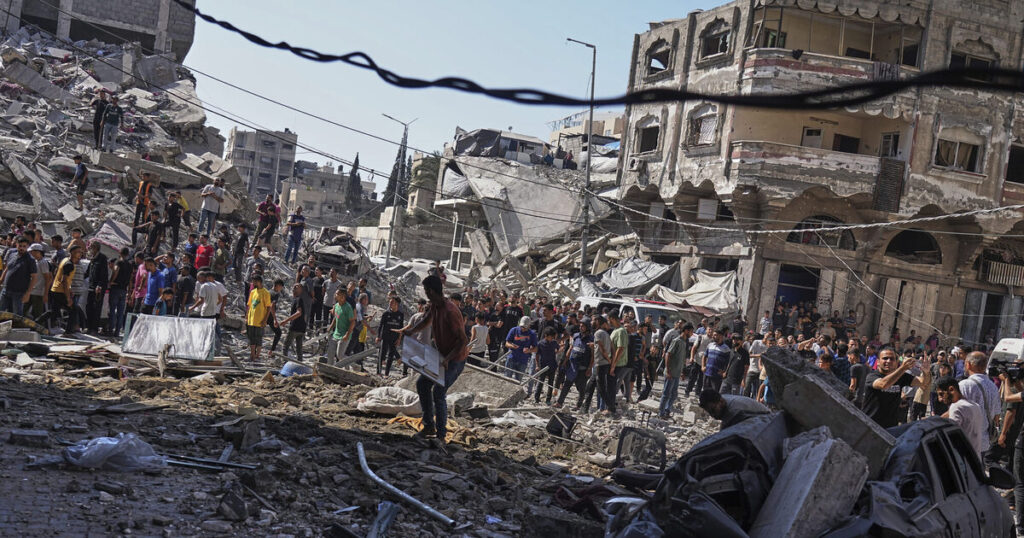At least 34 people have died in Gaza due to recent Israeli strikes, according to health officials. Palestinians are facing a worsening humanitarian crisis in Gaza, though ceasefire prospects are improving.
The strikes, which began late Friday and continued into Saturday morning, reportedly killed 12 people at the Palestine Stadium in Gaza City (being used as a shelter for displaced individuals) and another eight in residential apartments, according to Shifa hospital staff. The hospital received the bodies.
Six additional fatalities occurred in southern Gaza when a strike impacted a tent in Muwasi, the hospital reported.
These strikes occurred as US President Donald Trump stated a potential ceasefire agreement could be reached within the next week. Speaking to reporters at the Oval Office on Friday, Trump said, “We’re working on Gaza and trying to get it taken care of.”
An official familiar with the matter informed The Associated Press that Israel’s minister for strategic affairs, Ron Dermer, will travel to Washington next week for discussions on a Gaza ceasefire, Iran, and related matters. The official requested anonymity as they lacked authorization to speak to the media.
Negotiations have been ongoing since Israel ended the most recent ceasefire in March, continuing its military actions in Gaza and deepening the already severe humanitarian crisis.
Roughly 50 hostages remain in Gaza, with fewer than half believed to be alive. They are among the approximately 250 hostages taken during the Hamas attack on Israel on October 7, 2023, which initiated the 21-month war.
According to Gaza’s Health Ministry, the war has resulted in over 56,000 Palestinian deaths. The ministry does not differentiate between civilians and combatants but states that more than half of the deceased were women and children.
Families of hostages are hopeful that Mr. Trump’s involvement in facilitating the recent ceasefire between Israel and Iran might generate greater leverage for a deal in Gaza.
Israeli Prime Minister Benjamin Netanyahu is currently benefiting from high public approval due to the Iran war and its perceived successes. Some suggest he may feel more empowered to pursue an end to the Gaza conflict, a move opposed by his far-right coalition partners.
Hamas has consistently stated its willingness to release all hostages in exchange for an end to the war in Gaza. Mr. Netanyahu maintains that the war will only cease once Hamas is disarmed and exiled, a demand the group has rejected.
Meanwhile, Palestinians in Gaza face a catastrophic situation marked by severe hunger. Following a complete blockade of food supplies for over two months, Israel has only permitted a limited amount of aid into the territory since mid-May.
The United Nations’ efforts to distribute aid have been hampered by armed groups looting trucks and desperate individuals unloading supplies from convoys.
Palestinians have also been reportedly shot and wounded while traveling to newly established aid sites operated by the American and Israeli-backed Gaza Humanitarian Foundation, according to Gaza’s health officials and witnesses.
Palestinian witnesses claim that Israeli troops have fired upon crowds heading toward these aid sites. The Israeli military has stated it is investigating incidents where civilians were harmed while approaching the sites.


